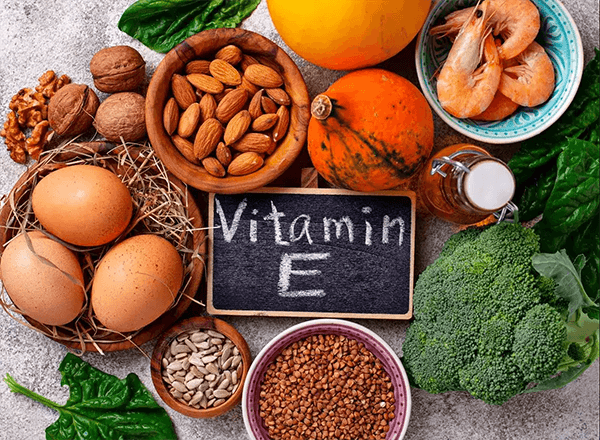- +033 2572 7171
- info@dhanvantary.com

4.5 Rating | 4500 Review

4.5 Rating | 4500 Review
Vitamin E is a fat-soluble vitamin. As an antioxidant, Vitamin E plays a crucial role in safeguarding cell membranes from damage inflicted by free radicals and inhibits the oxidation of LDL cholesterol. It consists of a group of compounds known as tocopherols, which are categorized into various forms, including alpha, beta, and gamma.

Vitamin E is essential for the preservation of the structure and functionality of skeletal, cardiac, and smooth muscles within the body. Additionally, it contributes to the formation of red blood cells (RBCs) and the storage of vitamins A and K, as well as minerals such as iron and selenium. Its positive influence extends to the immune system and it may alleviate symptoms associated with cancer, Alzheimer’s disease, and certain diabetes-related complications, particularly those affecting the eyes.
Additional benefits may include:
Vitamin E can be obtained in both natural and synthetic forms, although the most effective method is through natural food sources. The following are notable dietary sources of Vitamin E:
Vitamin E deficiency is uncommon in humans; however, individuals with malabsorption issues may exhibit symptoms associated with this deficiency. Infants born prematurely or with very low birth weight are particularly vulnerable to a lack of vitamin E.
Fatigue, premature aging, miscarriage, muscle weakness, delayed tissue healing, oily stools, chronic diarrhea, and impaired bile secretion.
While vitamin E is generally considered safe, excessive intake may lead to complications, including:
The dosage of vitamin E varies by age:
